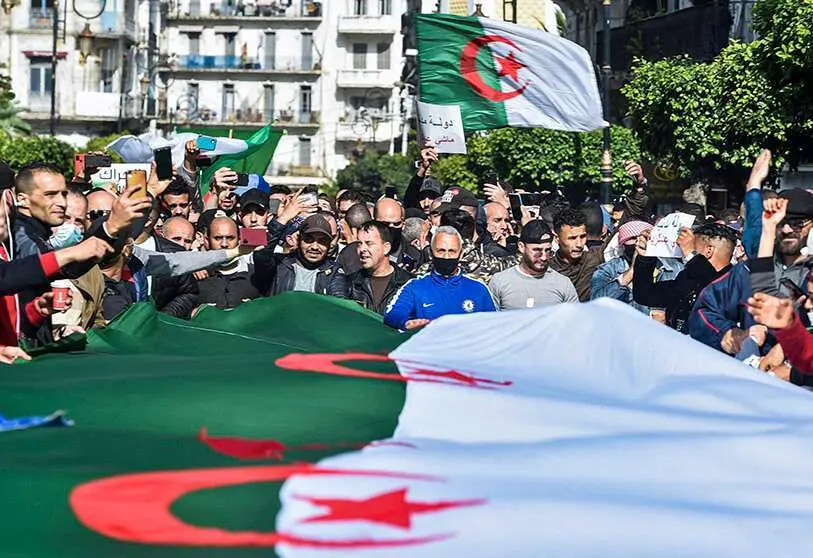Year II of the Hirak

Upon his return from Germany, after several months of absence due to the COVID-19 episode, Algerian President Abdelmadjid Tebboune dissolved the National Assembly and called for early legislative elections. The head of state also held talks with opposition political parties and initiated a ministerial reshuffle of "sectors that have deficits in their management felt by the citizens and by ourselves," he said.
All this happened very quickly. A few days before the anniversary of the Hirak, the spontaneous popular movement born in Algeria in 2019 that led to the resignation of former President Bouteflika and allowed the current head of state to be in office.
"The blessed Hirak saved Algeria. I decided to grant a presidential pardon to some 30 people on whom a court sentence had been handed down, as well as others on whom no sentence had been handed down. Between 55 and 60 people will join their families as of tomorrow," the head of state announced on the third day of the commemoration of the popular uprising. At a time when Algerians were preparing to take to the streets again.
In the wake of this race against time, journalist Khaled Drareni, imprisoned a year ago for doing his job as a journalist and covering the Hirak, was released. Rachid Nekkaz, a former presidential candidate suffering from cancer and on hunger strike, was also "pardoned" by the president.
Other political prisoners have also been released, but not all. There are still 70 "forgotten" prisoners in Algerian jails, according to estimates by the National Committee for the Liberation of Detainees (CNLD). All of them were imprisoned in the context of the Hirak or following publications hostile to the regime on social networks.
The reform of justice is one of the main demands of the Algerian street. The judicial institution is today synonymous with repression. Mistrust is real and Algerians do not trust their justice system, which they consider to be "in charge". The divorce that had already begun was accentuated by the trials of the "hiraqists" and the harsh sentences imposed on them.
In this tense context, the young political activist and student Walid Nekkiche denounced the torture and ill-treatment he suffered while in the custody of the security services. Following the general outrage, an investigation was opened, but here too, mistrust remains: "The preliminary investigation by the Prosecutor's Office must not be just another subterfuge to calm national and international anger and indignation. Justice must be done for what Walid Nekkiche was subjected to for six days in the Antar barracks and his torturers must be identified and brought to justice," said the Committee against Torture.
Unfortunately, Nekkiche's case does not appear to be isolated. Political prisoner Karim Tabbou had also denounced scenes of torture and humiliation. The end of omerta in Algerian prisons heralds a new era.
Despite the scandal and the tensions, the Minister of Justice, Belkacem Zeghmati, has remained in his post. While Algeria is going through a crisis of confidence in its institutions, the Minister of Justice presented on March 3 a bill allowing the deprivation of Algerian nationality of citizens living abroad who are implicated in "crimes against the interests of the state." This provoked an outcry of indignation at a time of major reform projects. Demonstrations against the regime have resumed in Algiers, in cities large and small. The same slogans "Civilian state, not military" were chanted.
The Army and Tebboune are trying to stabilize society, but the health crisis and its repercussions on the economy have only made their task more difficult. Recently, table oil disappeared from Algerian stores before reappearing, bringing back bad memories. Plummeting purchasing power and declining incomes for the poorest continue to weigh on the country's stability.
"The Hirak is not dead," the banners read. If the spontaneous movement of 2019 has not managed to structure itself as some deplore, it remains a sufficient force and energy that continues to shake the system, questioning society in its most fascinating and unpleasant aspect. During these marches, minorities become visible and women assert themselves in the public space. The Hirak challenges, it is a field where the most divergent words are confronted... it is simply the expression of today's Algeria and aims to make itself heard.

